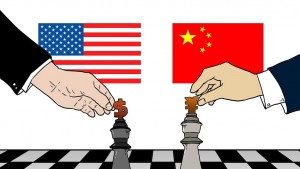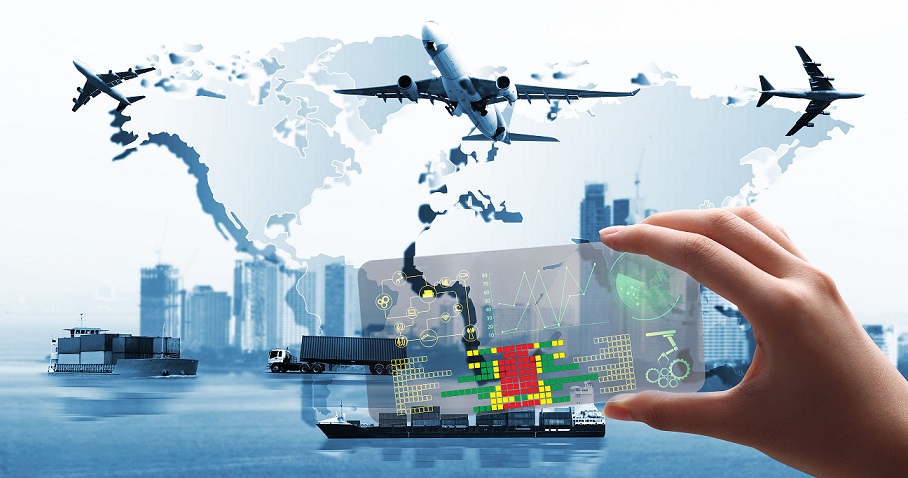US-China Trade War and Future of Globalization
Political pressures could once again effect a rollback
The verdict of history is that the trade war that’s now raging between the United States and China will lead to no good — with consequences that could go well beyond trade and threaten the world’s geopolitical and economic stability. How this plays out is anyone’s guess, but possible fallouts range from a gradual disintegration of the existing global trading system, to the formation of trading and economic blocs, and, at worst, to war itself.
The historical parallels are mostly sobering. During the 1990s, the widespread assumption among economists and business leaders was that “globalization” was permanent and mostly beneficial. Global flows of goods, services, money (aka “capital”), ideas and technology boosted living standards. The process was widely seen as irreversible or “a one-way road to the future”. But it wasn’t!
In the last half of the 19th century, new technologies — the telegraph, steamships, railroads — brought countries closer together, just as new technologies — containerization, jet aircraft, fibre optics and the internet — have today.
The result was mass movements of people, goods and capital across borders. The first trans-Atlantic cable was laid in 1866. Between 1871 and 1915, an estimated 36 million people left Europe, most headed for the New World, leaving countries with too many workers and entering nations with too few. Though messy and often cruel, this shift ultimately paid huge dividends in improved living standards.
Great Britain, the leading economic power of the day, maintained order through its embrace of the gold standard (which stabilized prices) and free trade (which expanded markets).
The great streams of capital, trade, and migration were linked and without the capital flows, it would have been impossible to construct the infrastructure — the railways, the cities — for the new migrants. Globalism fails because humans and the institutions they create cannot adequately handle the psychological and institutional consequences of the interconnected world.
The collapse of pre-World War II globalization was hastened by the Great Depression, but in James’ telling, it might have buckled under political pressures in any case. There was a clamour for more protectionism, more immigration restrictions and more curbs on global capital flows. Sound familiar? In 1931, Britain abandoned the gold standard; in 1932, it ditched free trade by creating preferential tariffs for Commonwealth countries at a conference in Ottawa.
Flash forward. In the first decades after World War II, the United States successfully urged its allies to liberalize trade, but support for this approach has waned.
By accident or design, the contentious trade negotiations between the US and China will now reframe the international economic system in the context of a new century with different political and economic conditions. According to a report by the Peterson Institute, the tariffs imposed by US President Donald Trump on Chinese imports into the US have raised the average tariff to 24 percent from 3 percent at the start of the trade war and “will affect nearly everything Americans purchase from China.”
 Although China has retaliated against Trump’s tariffs, the effect on US exports may be less for two reasons, notes Bown’s report: First, China has exempted 31 percent of US exports from increased tariffs, including aircraft, pharmaceuticals and semiconductors; and second, China’s tariffs seem lower than America’s.
Although China has retaliated against Trump’s tariffs, the effect on US exports may be less for two reasons, notes Bown’s report: First, China has exempted 31 percent of US exports from increased tariffs, including aircraft, pharmaceuticals and semiconductors; and second, China’s tariffs seem lower than America’s.
It’s a good guess that the new global economic system will give overt political considerations greater weight than its predecessor. Countries — including, obviously, the US and China — will link trade benefits and penalties to their political agendas. This is a perilous path, as no doubt both Americans and Chinese have realized in recent months.
There is a powerful tension between politics and economics. Countries and their voters want to reclaim their economic sovereignty — that is, the ability to influence their economies — when technologies and markets have increasingly transferred those powers to transnational forums that defy easy manipulation.
Put in the simplest terms: Both China and the US want to be King of the Hill, instead of learning how to share.
 Jahangir's World Times First Comprehensive Magazine for students/teachers of competitive exams and general readers as well.
Jahangir's World Times First Comprehensive Magazine for students/teachers of competitive exams and general readers as well.



